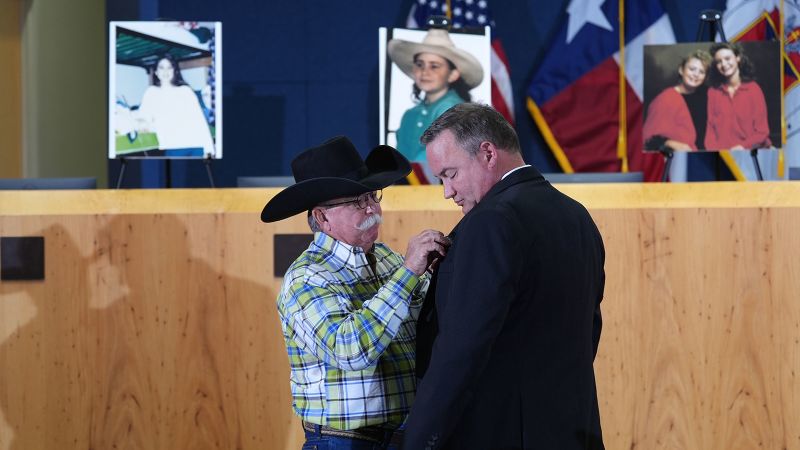When Dan Jackson took the reins of the Austin, Texas, police department’s unsolved homicide unit in 2022, his boss approached the detective with a sense of urgency.
“My first day on the job, my supervisor asked me to come into his office and shut the door,” Jackson said. “I thought I was already in trouble, for some reason.”
Jackson wasn’t in trouble, but he was given serious marching orders: Solve the murders of four teenage girls in a yogurt shop that traumatized the community and shocked Texans over three decades ago.
“I knew at that point … the gravity of the case, how big it was at that point, it would be with me the rest of my life,” Jackson told CNN in an exclusive interview. “This is my career from now on … Even if it’s solved, I’ll still be with it forever.”
So dogged was Jackson’s subsequent pursuit of justice, even being shot in the line of duty didn’t stop him from staying on the case, highlighted in an HBO documentary released in August called “The Yogurt Shop Murders.”
Three years later, thanks to a combination of improved DNA technology, ballistics testing, assistance from in-state and out-of-state law enforcement and fortuitous timing, Jackson’s persistence since that meeting with his supervisor has paid off.
The case finally has been solved, but for a few loose ends, Jackson said.
Robert Eugene Brashers, a suspected serial killer linked to multiple deaths and rapes across the country who died in 1999, was identified on Monday as the man likely responsible for the deaths of the four girls in Austin in 1991.
“I’m 100% that this is Robert Eugene Brashers,” Jackson told CNN.
Detective Dan Jackson speaks during a news conference regarding a breakthrough in the 1991 yogurt murders case in Austin. An image of suspected killer Robert Eugene Brashers is displayed on the screen above Jackson. Eric Gay/AP
The findings also effectively means the exoneration of four teenage boys initially implicated in the killings in 1999, two of whom confessed. The two who confessed – and later recanted – were convicted of capital murder and remained in prison until DNA evidence proving their innocence led to their release in 2009, prosecutors said.
“The overwhelming weight of the evidence points to the guilt of one man and to the innocence of four,” Travis County District Attorney Jose Garza said at a news conference Monday, noting the Austin police investigation into the murders remains ongoing nonetheless.
“They say it’s when Austin lost its innocence, and we had all these
Continue Reading on CNN
This preview shows approximately 15% of the article. Read the full story on the publisher's website to support quality journalism.
